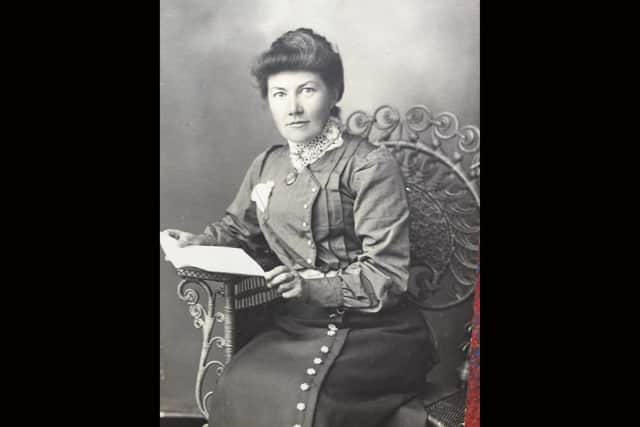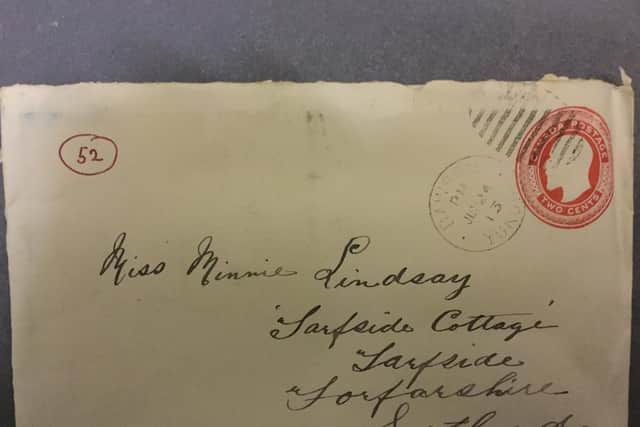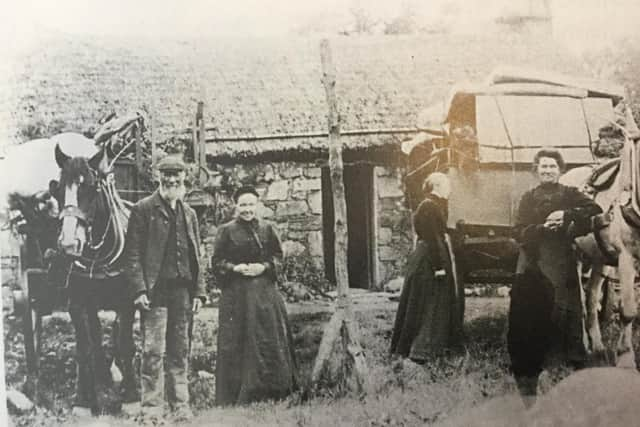The saucy, secret love letters that tell of yearning in a Scottish glen
Now, more than 100 years later, the correspondence between two lovers from a Scottish glen, separated by an adventure to prospect gold in Canada, is being shared.
Writer and actress Maria MacDonell will bring the story of Alexander Middleton and Willamina Lindsay, both from Glenesk in Angus, to the Edinburgh Festival Fringe this summer.
Advertisement
Hide AdAdvertisement
Hide AdMiss Lindsay’s Secrets uses the original letters, which were found concealed at Glenesk Folk Museum, to tell of the pull for home and absent loves, as well as the morality of bringing private stories to public attention.
Ms MacDonell said she wanted to write the story partly to bring attention to the museum near Tarfside, which was set up by schoolteacher Greta Michie in 1955 to the capture the area’s vanishing ways of deep country.
The letters were discovered ahead of the museum's refurbishment, when a large cabinet was pulled away from the wall.
Ms MacDonell said: "Between the wall and the cabinet was this box and inside this box, there were 55 letters. The box had been deliberately been hidden and I think it was hidden by Greta Michie. I think she read them and decided she had to hide them.”


The letters were written by Alexander – “a glen lad” – to Willamina, also known as Minnie, a seamstress, after he left for a Klondike gold prospecting expedition in Canada in 1902.
Ms MacDonell said: “The letters very much reflect the life that he left to go and seek his fortune. They are very rich and they give a very clear idea what it was like to be part of that Klondike gold rush, but they also give a beautiful perspective on the glen at the time.
“They are also saucy letters, they are homesick letters. They talk about returning home, to both Willamina and the glen.
"It’s a yearning for the landscape and everything that home means, and Willamina is part of that .”


Advertisement
Hide AdAdvertisement
Hide AdIn one letter, Alexander, who was 26 when he left, and Willamina, aged 23, talk of his hankering for scones and the “real scotch bun” – as well as for the woman he left behind.
He wrote: “I just had to go to bed and dream about them an you too. Its too bad, isn’t it, to wake up and find a the pleasant things are only dreams. Weel weel, some ‘o the pleasant things may be real some day.”
The story is set in a museum and told through the eyes of a curator, whom she plays, and deals with the question of how stories move from the hidden to the observed.


Ms MacDonell, who originally met some resistance from someone who knew Willamina to the letters being made public, said: “The play is very respectful to all the people involved. Celebrities can put themselves up for public scrutiny, but that is different from private stories and the individuals who didn’t choose to be in the history books. But do we leave these stories behind, when the untold stories are just as important?”
Miss Lindsay’s Secret will be staged at the Scottish Storytelling Centre throughout August.
Comments
Want to join the conversation? Please or to comment on this article.
